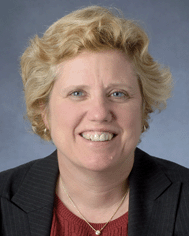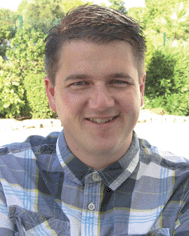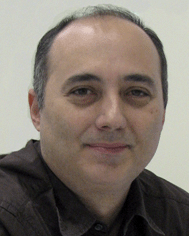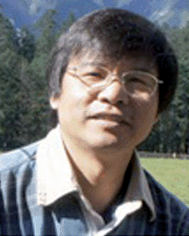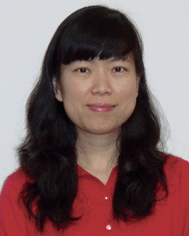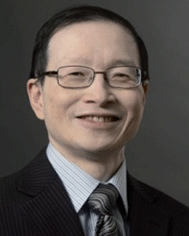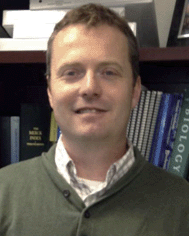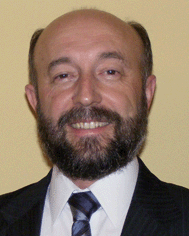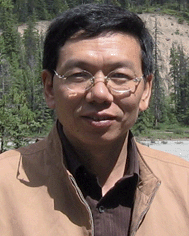Editorial Board profiles
Susan Lunte
Susan M. Lunte is the Ralph N. Adams Distinguished Professor of Chemistry and Pharmaceutical Chemistry at the University of Kansas, Lawrence, KS. She received a B.S. degree in Chemistry from Kalamazoo College, Kalamazoo, MI, in 1980, and a Ph.D. in Analytical Chemistry in 1984 from Purdue University, West Lafayette, IN. She was a research scientist at Bioanalytical Systems, West Lafayette, IN (1984) and Procter & Gamble, Cincinnati, OH (1984–1987) before coming to the University of Kansas. Dr Lunte began her academic career at the Center for Bioanalytical Research (CBAR) in 1987 as a non-tenure track scientist. She was appointed as Associate Director in 1993 and was Director from 1994 to 1997. In 1995, Dr Lunte joined the Department of Pharmaceutical Chemistry as an Associate Professor and was promoted to Professor in 2000. In 2006, she was named the Ralph N. Adams Distinguished Professor of Chemistry and Pharmaceutical Chemistry. Dr Lunte has been the recipient of a NSF CAREER Award; the Agnes Fay Morgan Research Award, and the University of Kansas Graduate Student Mentoring Award. In 2002 she was recognized by the undergraduate students as a Center for Teaching Excellence Outstanding Teacher at KU and named an American Association of Colleges of Pharmacy Teacher of the Year. She is a fellow of the American Association of Pharmaceutical Scientists. In 2004, Dr Lunte was the recipient of the AAPS Research Achievement Award in Analysis and Pharmaceutical Quality, and in 2007 received the AAPS Analysis and Pharmaceutical Quality (APQ) Outstanding Manuscript Award. She has been an associate editor of Pharmaceutical Sciences and has served on a number of editorial boards including Pharmaceutical Research, Analytical Chemistry, Electrophoresis and Analyst. Her research interests include new methodologies for separation and detection of peptides, amino acids, neurotransmitters and pharmaceuticals in biological fluids.
Craig Banks
Craig E. Banks is an Associate Professor of Chemistry at Manchester Metropolitan University and has published over 260 papers with a h-index of 42 (Web of Science, December 2013). He has written 4 books, contributed 14 book chapters and is an inventor of 17 patents. Craig has also spun out two companies from his research. Craig was awarded the Harrison–Meldola Memorial Prize in 2011 for his contributions to the understanding of carbon materials, in particular graphene and its application as an electrode material. His current research is directed towards the pursuit of studying the fundamental understanding and applications of nano-electrochemical systems such as graphene, carbon nanotube- and nanoparticle-derived sensors and developing novel electrochemical sensors via screen-printing and related techniques.
Jonas Bergquist
Jonas Bergquist is Full Chair Professor in Analytical Chemistry and Neurochemistry at the Department of Chemistry at Uppsala University, Sweden, and Adjunct Professor at the Department of Pathology at University of Utah, USA. He received his M.Sc. degree in Biology and Chemistry from the University of Lund and his MD Ph.D. degree from the Institute of Clinical Neuroscience of the Göteborg University in Sweden. After a postdoctoral position at the Institute of Clinical Neuroscience, Sahlgrenska University Hospital, Dr Bergquist was initially promoted to Associate Professor at Göteborg then appointed as a Full Professor and Head of Department (prefect) of Physical and Analytical Chemistry at Uppsala University and later deputy Head for Department of Chemistry – Biomedical Centre.
Professor Bergquist's research group is continuously developing general analytical tools for screening and discovery of biomarkers for various pathological states. The technologies include all within the analytical chain important links: identifying relevant clinical applications, sampling, sample pretreatment, multidimensional liquid based separation, high resolution mass spectrometry such as FT-ICR, and OrbiTrap MS-multivariate data analysis including algorithms for cluster analysis and pattern recognition. Professor Bergquist uses these techniques to study numerous medical issues including neurodegenerative disorders and psychiatry, cancer, cardiovascular diseases, obstetrics and gynaecology, surgery and internal medicine.
Emanuel Carrilho
Emanuel Carrilho obtained his B.Sc. in Chemistry and M.Sc. in Analytical Chemistry from the University of São Paulo (USP) at São Carlos, Brazil, in 1987 and 1990, respectively. He obtained his Ph.D. at Northeastern University under the mentoring of Professor Barry L. Karger, from the Barnett Institute, in Boston, MA, in 1997. He joined the faculty of the Analytical Chemistry program of the Institute of Chemistry at São Carlos, USP in 1998. In 2004 he became Associate Professor at the same institution and Full Professor in 2013. During 2007–2009 he was a visiting scholar at Harvard University in the group of Professor George M. Whitesides.
Dr Carrilho's group has been working on the development of new bioanalytical methods covering the broad aspects of genomics, proteomics, metabolomics for human health and applied microbiology in the search for cancer biomarkers and neglected tropical diseases. The primary goal is to translate the targeted biomarkers research to microfluidic platforms with biosensors and microchip electrophoresis for point-of-care applications. Recently, the group has been developing microfluidic applications for low-cost diagnostics for developing countries using paper-based analytical devices (μPADs), and developing new ultrasensitive contactless conductivity detection.
Yi Chen
Dr Yi Chen works at the Institute of Chemistry, Chinese Academy of Science (CAS), as a professor and chair of CAS' Key Laboratory of Analytical Chemistry for Living Biosystems, mainly on CE (since 1984) and SPR imaging (since 1997), with 18 patents, 3 books and more than 200 publications.
Melissa Hanna-Brown
Melissa Hanna-Brown is an Associate Research Fellow within the Analytical R&D function of Pharmaceutical Sciences at Pfizer Global R&D Labs in Sandwich, Kent, UK, a visiting Professor at the University of Warwick, where she contributes to teaching of Separation Science, and a Fellow of the Royal Society of Chemistry. Melissa's research interests are in separation science technology development, chromatographic and electrophoretic method development strategies, high resolution and chemometric approaches for pharmaceuticals or complex biofluid profiling (especially metabolomics) and predictive modelling of separations. At Pfizer, Sandwich, Melissa leads drug substance and drug product analytical science support for late stage drug development through to new drug regulatory applications. She also represents Pfizer in the European Federation of Pharmaceutical Industries and Associations (EFPIA) cross-industry topic team on Quality by Design for Analytical Methods. Melissa's previous research has included the application of separation (chromatographic and electrophoretic) technologies as models for rapid prediction of drug–biomembrane partitioning and triple-column capillary electrophoresis instrument development (for which she won the Desty Memorial Prize for Contribution to Separation Science in 2000). Melissa has been an invited presenter at over 50 national and international conferences since the start of her Ph.D. studies and has around 50 publications including peer-reviewed articles and book chapters. Melissa is the newly elected President-elect of the Royal Society of Chemistry Analytical Division Council, has a chair on the Industry and Technology Division Council and is the Vice-Chair of the RSC Separation Sciences Interest Group.
Milton Lee
Milton L. Lee received a B.A. Degree in Chemistry from the University of Utah in 1971 and a Ph.D. in Analytical Chemistry from Indiana University in 1975. Dr Lee spent one year (1975–76) at the Massachusetts Institute of Technology as a Postdoctoral Research Associate before accepting a faculty position in the Department of Chemistry and Biochemistry at Brigham Young University, where he is the H. Tracy Hall Professor of Chemistry. Dr Lee is best known for his research in capillary separation techniques and mass spectrometry detection. He is an author or co-author of over 550 scientific publications, and has given over 500 technical presentations on various aspects of his research. He has received a number of national and international awards including the American Chemical Society Award in Chromatography (1988), Martin Gold Medal (1996), American Chemical Society Award in Chemical Instrumentation (1998), Eastern Analytical Symposium Award for Outstanding Achievements in Fields of Analytical Chemistry (2008), Pittsburgh Analytical Chemistry Award, (2008), and the American Chemical Society Award in Separations Science and Technology (2012). Dr Lee has mentored over 65 M.S. and Ph.D. students. Professor Lee is also an entrepreneur and has been involved in transferring technology from his university research laboratory to the private sector. He co-founded three analytical instrument companies, the most recent of which is Torion Technologies, which markets hand-portable gas chromatography-mass spectrometry detection systems for first responders. He is listed as a co-inventor on 20 issued patents.
Lingjun Li
Dr Lingjun Li is a Professor of Pharmaceutical Sciences and Chemistry at the University of Wisconsin-Madison, USA. Professor Li has published more than 140 peer-reviewed research journal papers and has been recognized with numerous awards, including the NSF CAREER Award, the Sloan Research Fellowship, the American Society for Mass Spectrometry (ASMS) Research Award, and the 2011 Pittsburgh Conference Achievement Award. Dr Li's research interest is focused on the development of novel mass spectrometry-based tools, including new chemical labeling strategies, microscale separations, microdialysis, comparative proteomics and peptidomics strategies, and imaging mass spectrometry for the functional discovery of neuropeptides and protein biomarkers in neurodegenerative diseases.
Jim Luong
Jim Luong is the Associate Technology Director of the Analytical Technology Center of the Dow Chemical Company. As a leader of the GC Center of Expertise in Alberta Operations, Jim also leads the Global Gas Chromatography Technology Team. The team is responsible for the GC technology developments and external collaborative efforts with leading technology providers.
As an analytical chemist, Jim practises a number of techniques such as inductively coupled plasma spectrometry, mass spectrometry, and is most passionate about chromatography. Some key areas of research include ultra-trace analysis, multi-dimensional gas chromatography, and differential ion mobility spectrometry.
Jim has authored or co-authored over 600 internal publications and presentations. Externally, he has contributed over 50 articles in peer-reviewed journals with more than 100 contributed presentations/posters at international conferences. Jim has received 10 internal Dow awards including the 1999 Genesis Award for Excellence in People Development, the 2004 Dow Global Scientist Award for Excellence in Science and Technologies, the 2007 Northern Alberta Institute of Technology Award of Distinction, and the 2013 Chemical Society of Canada's Maxxam Award.
In his 32 year career at Dow, Jim has been involved in the start-up of a number of world-class chemical and petrochemical plants at Dow and has held a number of key positions including R&D and manufacturing lead chemist.
Scott Martin
R. Scott Martin is the College of Arts and Sciences Endowed Professor of Chemistry at Saint Louis University. He received his B.S. and M.S. degrees from Missouri State University and a Ph.D. in Analytical Chemistry from the University of Missouri-Columbia. He then was a NIH post-doctoral fellow in the Department of Pharmaceutical Chemistry at the University of Kansas. Dr Martin started at Saint Louis University in 2003, where he was promoted to Associate Professor in 2008 and Full Professor in 2012. In addition to being named the College of Arts and Sciences Endowed Chair in Chemistry, he has received other recognition including being named program chair of the 65th Midwestern Universities Analytical Chemistry Conference (MUACC 2011); the Graduate Mentor Award (Saint Louis University Graduate Student Association, 2011); member of the Board of Directors for the Association for LabAutomation (2009–2010); program chair for the LabAutomation conference (2009); and member of the editorial board for Electrophoresis (2005–2008) as well as Analytical Methods (2013–present). His research interests involve the use of microchip devices for monitoring biological systems. This includes development of methods for analyzing cells on-chip through integration of multiple techniques such as cell culture, electrophoresis and electrochemistry.
Antonio Molina Díaz
Antonio Molina Díaz received his B.Sc. in 1975 and Ph.D. degree in Chemistry from the University of Granada (Spain) in 1982. He was appointed as Associate Professor (1985) and then Professor (2003) at the University of Jaén (Spain). His current research interests include the study of new sample treatment/extraction methodologies for the determination of pesticides and other contaminants in foodstuffs by chromatographic techniques hyphenated with mass spectrometry, the development of automated methods based on flow analysis using multicommutation and solid-phase spectroscopic detection (flow-through optosensors), the characterization and evaluation of the performance of advanced wastewater treatment technologies for sustainable water reuse, and the application of methodologies based on LC-TOFMS for forensics/toxicology/doping control applications. He is (co-)author of more than 180 publications in peer reviewed international journals, 15 book chapters and holds a patent. He has supervised 15 Ph.D. theses and is the head of the Analytical Chemistry Research Group at the University of Jaén.
Xiu-Ping Yan
Xiu-Ping Yan is a Cheung Kong Distinguished Professor at Nankai University, China. He received his M.S. in Analytical Chemistry at the Dalian Institute of Chemical Physics, Academy of Sciences of China (1987), and Ph.D. in Environmental Chemistry at the Research Center for Eco-Environmental Sciences, Academy of Sciences of China (1993). He held post-doctoral positions in the Department of Chemistry at Peking University, China (1993–1994), Department of Applied Research at Bodenseewerk Perkin-Elmer GmbH, Germany (1995), Micro- and Trace Analysis Center at the University of Antwerp (UIA), Belgium (1996), and Department of Geological Sciences at the University of Saskatchewan, Canada (1997–1999). He was awarded the NSFC National Distinguished Young Scholars Foundation (2000), and CCS Shu-Quan Liang Prize for Fundamental Research in Analytical Chemistry (2006). He has approximately 170 publications in international journals and holds 13 patents. In addition to his current role of Associate Editor for Analytical Methods, Professor Yan serves on a number of editorial (advisory) boards including Talanta, Analytica Chimica Acta, Electrophoresis, and Cancer Nanotechnology. His research interests include analytical atomic (mass) spectrometry and its combination with flow injection, chromatography and capillary electrophoresis, green methodologies for sample pre-treatment, and advanced functional materials for environmental analysis, bioanalysis and bioimaging.
| This journal is © The Royal Society of Chemistry 2014 |

